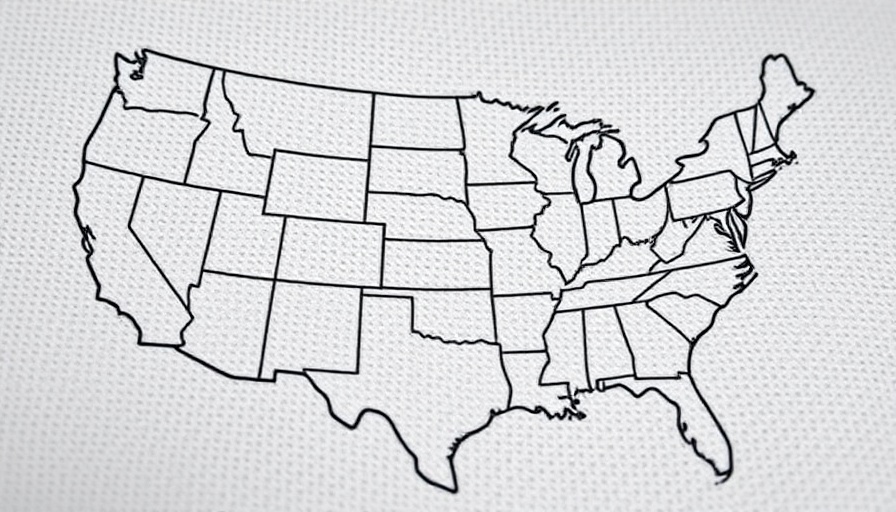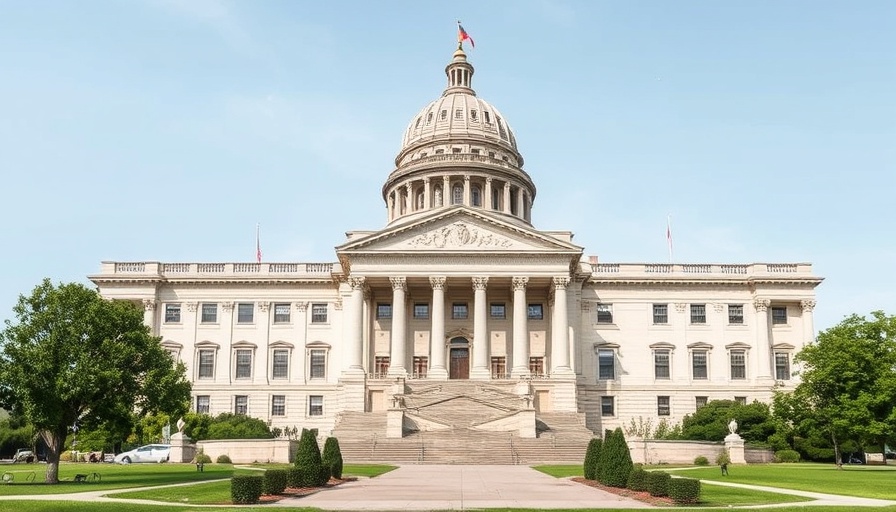
Understanding the Controversy: What’s At Stake?
The recent lawsuit filed by several states against the U.S. Department of Transportation (DOT) has surfaced a tension point between federal policy and state governance. This legal battle stems from the DOT's threat to revoke over $1 billion in federal grants to states refusing to assist in immigration enforcement initiatives. The stakes are high for local governments, risking funding for essential infrastructure projects critical to maintaining and enhancing community welfare.
The Implications of Federal Funding on Local Autonomy
The heart of this legal dispute lies in the conflict between state rights and federal requirements. States argue that tying federal grants to immigration enforcement undermines their sovereignty and ability to govern effectively. Issues like maintaining roads, bridges, and public transportation systems should not be intertwined with political agendas. This not only affects local economies but also raises questions about government priorities and citizen rights.
A Closer Look at the States Involved
States like California, New York, and Illinois are taking a stand against what they perceive as an unjust federal overreach. These states rely heavily on federal funding to support vital public works and services. Their lawsuit is not just about this one issue but is seen as a broader fight to protect local interests from federal policy coercion. Such a stance echoes sentiments shared by many community leaders who view federal demands as conflicting with local governance.
Public Reaction: Local Voices Weigh In
The public reaction to the DOT’s threats has been mixed. Some residents are frustrated with their government’s prioritization of federal grants over community welfare. They argue that public safety and infrastructure should come first, irrespective of immigration policies. Others support a tougher stance on immigration and believe that federal funds should be conditioned on cooperation with enforcement efforts.
Long-Term Effects on Infrastructure Projects
If the DOT follows through with its threat, the implications could ripple across multiple states, stalling critical infrastructure projects aimed at improving public safety and quality of life. Roads, bridges, and transportation systems that have already faced years of funding uncertainties could see further delays. This lawsuit challenges not only the immediate funding at stake but also sets a dangerous precedence for future federal-state relations.
Future Predictions: What Comes Next?
The outcome of this lawsuit could redefine the federal government’s approach to funding statewide projects. Should the states prevail, it may lead to a reassessment of how future grants are administered. Conversely, a ruling in favor of the DOT could embolden federal authorities to impose stricter conditions on financial assistance, fundamentally altering the power dynamics between state and federal governments.
Conclusion: The Call for Collaboration
This conflict ultimately reveals a deeper need for dialogue and collaboration between federal and local governments. As the lawsuit progresses, it serves as a reminder that infrastructure and governance should prioritize community needs over partisan politics. Residents are encouraged to consider the importance of their local government's autonomy and advocate for infrastructure solutions that support their communities without the cloud of divisive policy implications.
Take Action: Engage with Local Governance
As a resident, you have a voice in shaping the future of your community. Engage with local officials on the significance of maintaining our infrastructure projects free from political bias. Attend town halls, write to your representatives, and advocate for policies that promote collaboration rather than contention.
 Add Row
Add Row  Add
Add 






Write A Comment